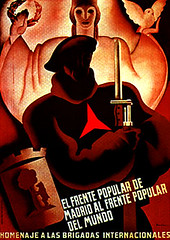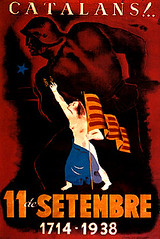Orwell #6
A tragic situation exists precisely when virtue does not triumph but when it is still felt that man is nobler than the forces which destroy him. It is perhaps more significant that Tolstoy sees no justification for the presence of the Fool. The Fool is integral to the play. He acts not only as a sort of chorus, making the central situation clearer by commenting on it more intelligently than the other characters, but as a foil to Lear’s frenzies. His jokes, riddles and scraps of rhyme, and his endless digs at Lear’s high-minded folly, ranging from mere derision to a sort of melancholy poetry (“All thy other titles thou has given away; that thou wast born with”), are like a trickle of sanity running through the play, a reminder that somewhere or other, in spite of the injustices, cruelties, intrigues, deceptions and misunderstandings that are being enacted here, life is going on much as usual.
"Lear, Tolstoy and the Fool," 1947
"Lear, Tolstoy and the Fool," 1947


1 Comments:
On a winter's morn, on a stormy day.
Post a Comment
<< Home